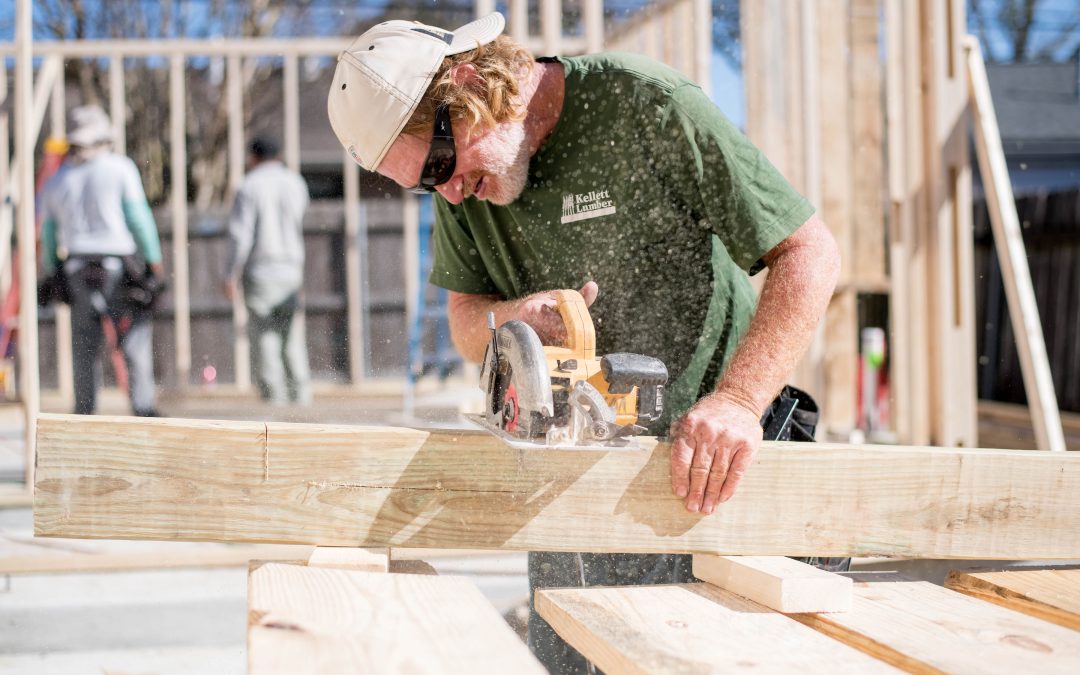Do Your Research
When to Start: 3-6 months before the renovation

After you’ve decided on your priorities for your project, it’s time to hire a contractor. Begin looking for contractors early, especially if you plan on doing work during the busy season – typically spring, summer, and autumn – because they can book up fast. Start by compiling an initial list of contractors to speak to. Consult friends and family, use Google to get an idea of your options, and read reviews. Once you have your shortlist, really dig through their testimonials and portfolio to find the contractors whose experience truly matches your vision. Look for contractors that routinely work at the level of your project; if you’re building a deck or finishing an attic, look for someone that works on smaller projects. If you want to build a house from the foundation up, you’ll need an experienced firm that can handle the project if you want it to go smoothly.
Interview Contractors
When to Start: 3-6 months before the renovation
Set up initial consultations with your top candidates. Make sure to meet in person if possible; communicating effectively and establishing a rapport is going to give you the best idea of what they’d be like to work with. Just because someone is a good builder doesn’t mean they’ll be a good fit for you. Make sure they understand your aesthetic and that you have the same priorities. If you have specific goals, like eco-friendly materials or the best built-in tech, make sure the contractor has experience with and affinity for those areas. You’ll want your contractor to be a partner in this process that knows the best ways to achieve what you want within your timeframe and budget. If they don’t ask you a lot of questions about your needs, desires, and the way you live, find someone else. Listening skills and dedication to creating the right space for you are crucial.
When going over previous projects, get references and check them. Don’t just ask for recent references; get ones from five to ten years ago so you can ask how the house is holding up. Is there any rot or mold? If they made a mistake, did they come back and fix it? To what degree did the final product match the designs? Check their Better Business Bureau listing.
Getting cost estimates from multiple contractors is a good idea, but price shouldn’t be the only factor you use to hire a contractor. Don’t go for the lowest bid. Good, professional help is worth the money, especially with something as important as your home. Be willing to pay for a good contractor, and be wary of the one who’s cheap and available right away. Like most things, in construction, you tend to get what you pay for, and anything that sounds too good to be true probably is. If one firm is quoting you $100k and three others are quoting you $250k for the same project, the job will probably need $250k to be done right.
Hire a Contractor
When to Start: 2-3 months before the renovation
After you’ve selected your contractor, ask a ton of questions upfront. Make sure you fully understand the plan before the contractor starts working. If you have things you know you’ll want, communicate those clearly from the very beginning, keeping in mind that a great contractor may also offer some possibilities that you hadn’t considered. Projects move along with fewer hiccups when there’s a plan that spells out every step and consideration, from the location and size of a window to the finish on the doorknobs. No detail is too small.
Know Exactly What You Want
When to Start: 1 month before the renovation

Some general contractors will help homeowners develop such plans, but consider hiring an architect or a designer who can generate detailed drawings and spec lists. Hiring a Design+Build firm gives you the best of both worlds and ensures that the construction team and the designer are always perfectly in sync. Design pros have seen many more renovations than you, and have a better understanding of what works in a home, whether it’s traffic flow in an open plan or the proper height for a towel rack. They also know which decisions have to be made first in order for others to fall into place.
Have good plans drawn up, and make sure you understand them. We create the most detailed, realistic renderings possible so you can get a true sense of what your space is going to be like to live in. Making changes after the plans have been finalized can cause all sorts of logistical issues on top of incurring extra costs. Even something as seemingly simple as moving a light switch can cost up to $1500 at the wrong stage in the process. Once you’re sure that you’re sure about the number and placement of things like windows, the fixtures, and the tile—then you’re ready to start working with your designer on selecting and ordering materials.
If you have any questions about how to hire a contractor, the Design+Build process, or want to schedule a consultation, please reach out to our team.

